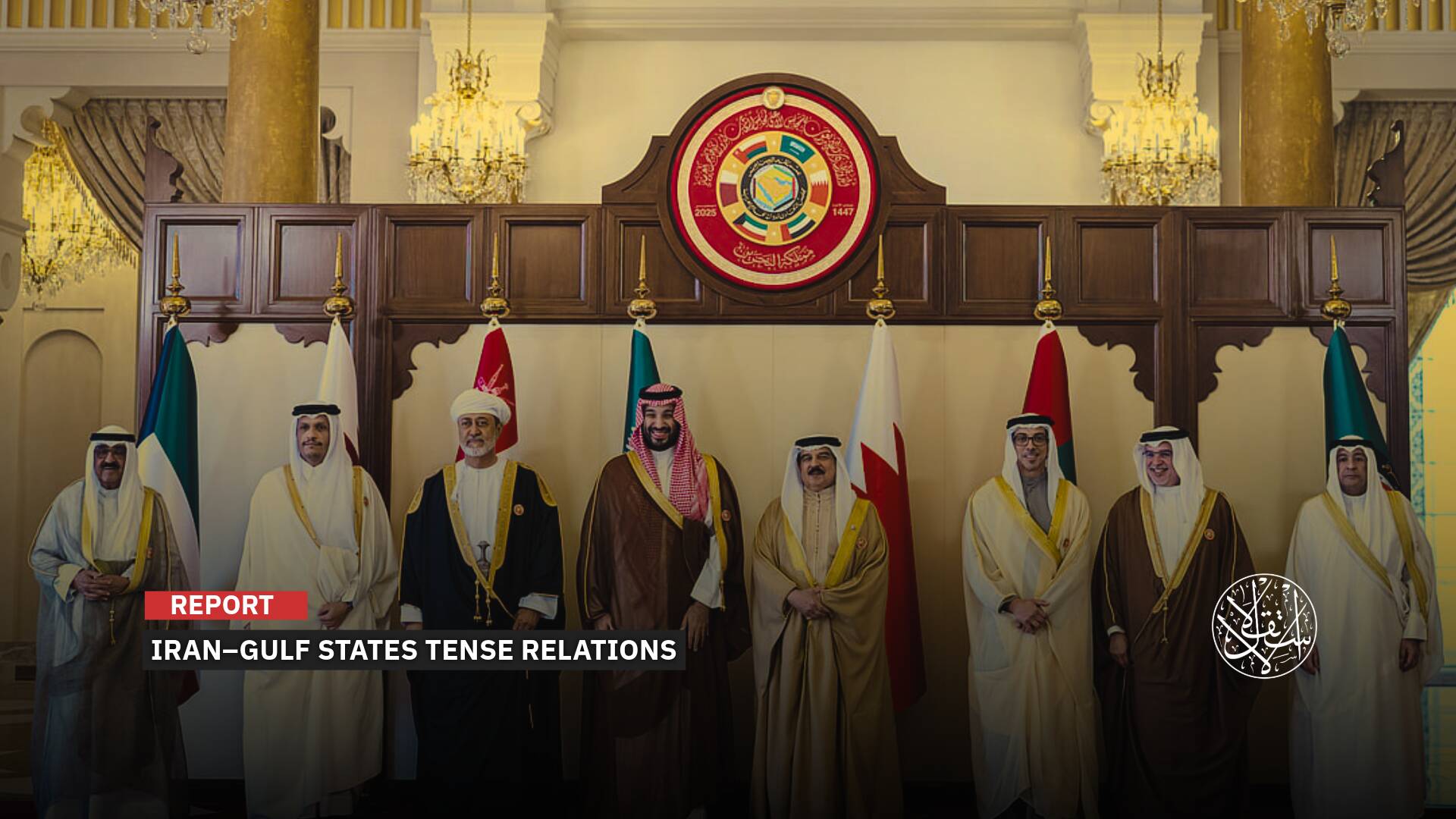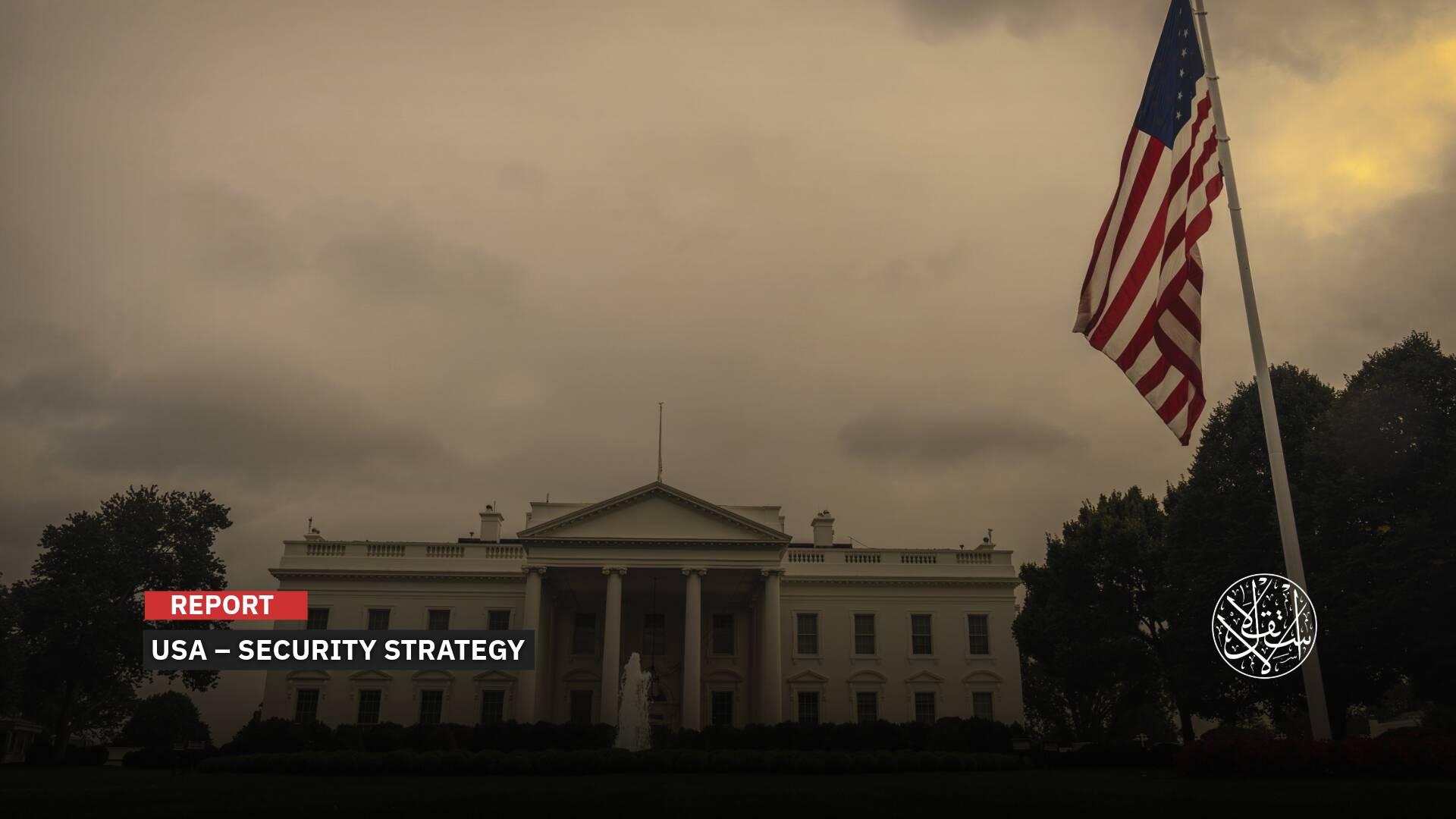Hadhramaut Tribal Alliance Challenges Yemen's Government Authority

The Hadhramaut Tribal Alliance leader criticized the Emirati-backed Southern Transitional Council.
Amid the escalating crisis between the so-called "Hadhramaut Tribal Alliance" and Yemen's Presidential Leadership Council (the highest body of the internationally recognized government), questions have arisen about the nature of the tribal formation and the influence it wields on the ground in Yemen.
The Alliance comprises the majority of Hadhramaut’s tribes, a governorate in eastern Yemen that covers 36 percent of the country's territory. It consists of 28 districts, with its capital and largest city being al Mukalla.
The governorate is bordered by Saudi Arabia to the north, the Arabian Sea to the south, the governorates of Marib and al-Jawf to the northwest, and al-Mahra and Shabwa to the east and west.
The Root of the Crisis
The current problem between the two parties lies in the decision by the Hadhramaut Tribal Alliance to halt the supply of crude oil to Aden, the temporary capital of Yemen’s internationally recognized government, in order to sustain electricity services.
Since February 3, 2025, the security committee affiliated with the Alliance has stopped the flow of crude oil to Aden, in an attempt to pressure the Presidential Leadership Council to implement a plan for normalizing the situation in Hadhramaut, which was announced by the council on January 7, 2025.
The Hadhramaut Tribal Alliance ignored a plea made by the General Corporation for Electricity in Aden on February 1, requesting continued fuel supply to ensure electricity service.
The plea warned that the city would face a "catastrophic situation that cannot be avoided" and that all vital services would be halted.
On January 7, the Presidential Leadership Council approved what it called the "Normalization Plan for Hadhramaut," aimed at addressing what it described as the "legitimate demands" of the region’s residents and their political and social components.
The plan was approved after tensions rose in the governorate, with the Hadhramaut Tribal Alliance declaring that some of its positions near the western city of al Mukalla were targeted by artillery in the context of a military campaign.
However, the second military region (affiliated with the legitimate government) denied conducting any attacks or military campaigns.
The presidential statement outlined the allocation of revenues from crude oil sales stored in the Dhabba and al-Masila terminals to build two new power stations in both the coastal and valley regions of Hadhramaut.
It also aimed to support efforts to unify and mobilize the region's people, strengthen their equitable partnership with the state, and address any future political entitlements.
The plan also included provisions to "integrate the people of Hadhramaut into the armed forces and security services according to the law and established recruitment standards," as well as the establishment of a general hospital in al-Hadba (Ghayl Bin Yamin) funded by diesel revenues from the state-owned PetroMasila company.
The statement also vowed to investigate the corruption allegations levied against PetroMasila—the government-run company responsible for the main oil production sector in Hadhramaut.
In the days leading up to the presidential statement, a campaign was launched against PetroMasila in response to allegations of corrupt practices.
Furthermore, the statement affirmed the need for "all local and central revenues to be managed in support of the governorate’s development and reconstruction in line with a joint development plan with the government and regional and international donors."
However, it stressed that these actions required "the local authority and all Hadhrami components to welcome the agreed-upon decisions and end protest movements" (referring to the armed militias of the Tribal Alliance), paving the way for comprehensive reforms that would restore the governorate's status as a driver of development, stability, and peace.
The armed security committees of the Alliance have since taken control of the entrances and exits of the Wadi Hadhramaut (Hadhramaut Valley)region, including the movement of oil tankers.
On January 11, 2025, the Alliance allowed the provision of crude oil to Aden’s presidential power station for a period of two weeks, which was then extended by another week until early February.
While the Hadhramaut Tribal Alliance initially welcomed the Presidential Leadership Council's initiative and allowed crude oil to flow for Aden’s electricity, it emphasized that "self-governance is the best option to fulfill the aspirations of the region's people in managing their affairs, free from centralization and exclusion."
The Alliance also demanded clear, transparent guarantees to build citizens’ trust in the plan’s credibility, asserting that the failure to meet these demands by the Presidential Leadership Council had reignited the crisis, with the deadline having passed.

A Unique Case
In July 2013, the Hadhramaut Tribal Alliance was founded under the leadership of Saad bin Hamad bin Habrish, the leader of the Hamoum, the largest tribe in the governorate.
Approximately six months later, Habrish was killed in clashes with security forces, allegedly over "demanding Hadhramaut's rights to its oil wealth," according to a statement released by the tribes on the anniversary of his death.
Since then, the Alliance, now led by Amr bin Ali bin Habrish, has been advocating for Hadhramaut’s share of Yemen's oil exports.
Hadhramaut produces about 100,000 barrels of oil daily from the Masila field, which is managed by the government, and this output is exclusively for export.
This accounts for a significant portion of Yemen's total crude oil production, especially with several oil-producing sectors having ceased exports.
The governorate played a key role in 2014, when thousands of supporters of the Southern Movement gathered in Aden, the largest city in the south, and in al Mukalla, calling for independence from the north and rejecting the federal state that was proposed at the time.
However, the Hadhramaut Tribal Alliance is not seeking independence from the north, but rather self-rule.
Amr bin Habrish, the Alliance's president, has previously stated that the Southern Transitional Council, led by Aidarous Qassem Al-Zubaidi and backed by the UAE, does not represent Hadhramaut.
In a video message aired on September 15, 2024, bin Habrish emphasized that any political council should represent the popular factions it pertains to, noting that while the Southern Transitional Council represents southern Yemen, the Hadhramaut Tribal Alliance represents the interests of the people of Hadhramaut.
These statements came amid a push by the Southern Transitional Council to respond to the Hadhramaut Tribal Alliance's armed movements, which have sought to control oil fields and establish their own representation for the governorate on the ground.
The tribes of Hadhramaut have made significant strides in their activism, which began months ago as a mere protest against the economic and social policies of Yemen’s internationally recognized government.
They called for improving the conditions of the population using the revenues from locally produced natural resources, but this has since escalated to the demand for self-rule.
On October 27, 2024, the Hadhramaut Tribal Alliance issued a statement pledging to continue escalating efforts to achieve "full self-rule, which the people have been calling for, and which preserves Hadhramaut's independence."
The governorate, the largest and wealthiest in Yemen in terms of oil reserves, has seen heightened tensions since July 2024, with the Hadhramaut Tribal Alliance and another faction known as the Hadhramaut Comprehensive Conference taking a stronger stand against the local authority and the Presidential Leadership Council.

Arena of Conflict
Saudi Arabia has not been absent from the power struggle over Hadhramaut.
It has reinforced the legitimacy of Yemen's internationally recognized government, bolstering its security and military presence in the governorate through its support for the creation of the National Shield Forces, directly under the command of Rashad al-Alimi, head of the Presidential Leadership Council (PLC).
In parallel, Saudi Arabia has strengthened its political foothold by establishing the Hadhramaut National Council (HNC), designed to rival the Hadhramaut Tribal Alliance and the Hadhramaut Comprehensive Conference in representing the governorate and speaking on behalf of its people.
The Hadhramaut Tribal Alliance encompasses numerous large tribes, including the Hamoum, Kindah, al-Shanafir, Nahd, Bani Murrah, Bani Dhanaa, al Numan, Noah, Siban, Yafa’a Hadhramaut, Thain, Al Awabeetha, and BalAbeed.
Hadhramaut, located in the east of Yemen, is not only one of the largest provinces in terms of land area but also one of the richest in natural resources, especially oil and gas.
The governorate is renowned for its historical significance and cultural uniqueness, having long been an economic hub and home to numerous wealthy individuals and major business figures.
Recently, Hadhramaut's strategic location, with its access to the Arabian Sea and the Indian Ocean, has turned it into a battleground for influence, particularly with the Southern Transitional Council backed by the UAE.
This council views Hadhramaut as an integral part of the envisioned "southern" state it seeks to establish, considering the province a key, non-negotiable element of its territorial ambitions.

Hadhramaut Governorate spans an area of approximately 193,032 square kilometers, with a population exceeding one million. Its capital, al Mukalla, is home to one of Yemen’s most significant ports, while the city's airport ranks as the country’s third-largest.
The main industries in Hadhramaut include agriculture, fishing, and livestock, with the governorate contributing 5.8 percent of Yemen's total agricultural production.
Key crops include dates, grains, and cash crops.
The region is also rich in mineral resources, including oil fields and valuable deposits of gold.
Historically, the Kingdom of Hadhramaut was a crucial hub for global trade in the ancient world.
The Shabwa Kingdom and Hadhrami traders were key players in the commerce of goods such as frankincense, myrrh, and spices—products that were highly prized across the Arabian Peninsula and the island of Socotra.











